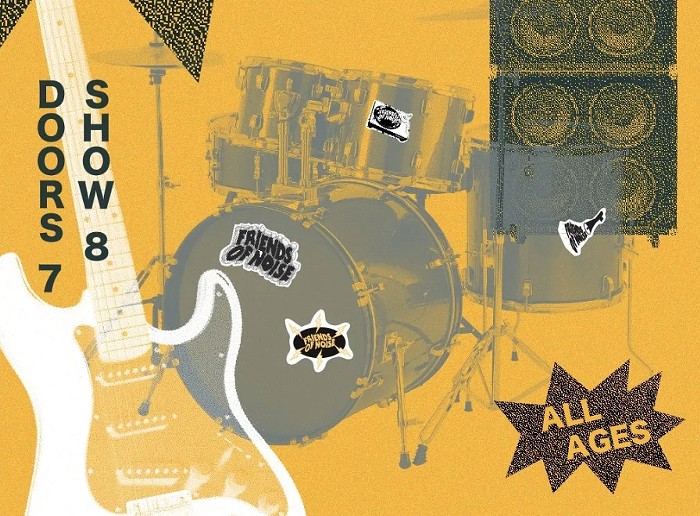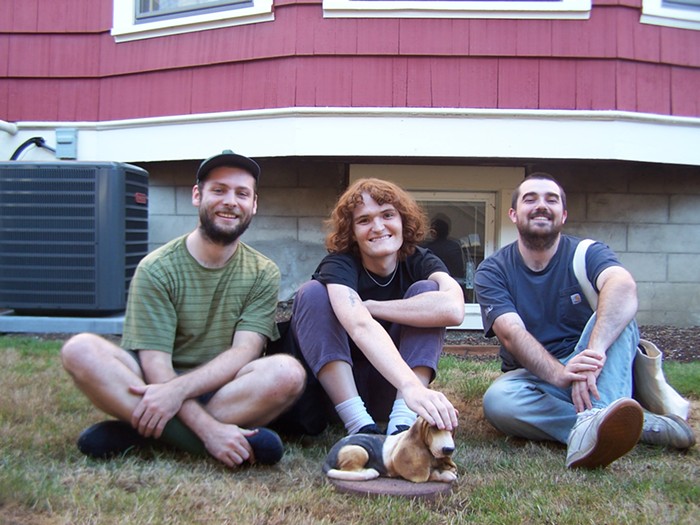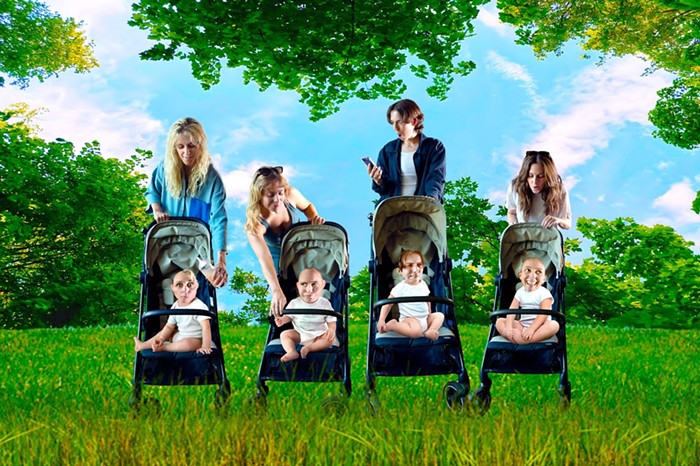IN 1996, MTV AIRED a short documentary on the City Nightclub in Portland. Said to be the only all-ages gay dance club in the country, the City was a haven for Portland's queer youth of the 1980s and 1990s. Street kids who'd fled small towns mixed with misfits who'd trek in from beyond the suburbs for legendary nights of dancing to house, industrial, and goth. Midnight commercials for the City aired on local television (they eventually got pulled after the word "pussy" was uttered), and the club's live drag and music performances proudly pushed the bounds of decency.
In short, it was a capital-S Scene. People dressed up in their wildest clothes, and you could entertain yourself all night just people-watching the crowd standing outside in a haze of clove cigarette smoke. It enjoyed a certain notoriety up and down both coasts, and if you count its earliest iterations, going back as far as 1983, it can be seen as a West Coast precursor to the New York club kids scene that flourished in the late 1980s.
The particular crisis that caught MTV's attention was a reflection of the club's darker side. Even though it didn't serve alcohol, the City was by most accounts a relatively druggy scene (though not any more so, arguably, than other nightclubs in Portland at the time), and its bathrooms were notorious for hookup sex. Protesters would often line the sidewalk opposite, determined to save the club kids' souls and return them to Jesus. According to Danny Schaefer—one of a group of four of the City's original club kids who are coming together to throw a reunion party this week—even the police were convinced that vampires hung out there. Like, actual vampires.
Another point of concern was the City's tendency to attract some of the older clientele who strayed over from the area just up the street, known alternately as the Pink Triangle or Vaseline Alley. Then, as now, some among the queer youth population were runaways, homeless, or otherwise vulnerable, and problems with prostitution and even homicide further dogged the club's reputation.
The City ultimately shut down in 1997, despite the protests of clubgoers, who marched by the hundreds on city hall. Owner Lanny Swerdlow ultimately made his way south to Palm Springs, where he currently resides. Despite its problems, the community that formed around the club remembers it fondly, a place they could be free without fear of exclusion.
Johnny Culley, who attended the club nightly and worked there "painting, cleaning, doing this and that," recalls it as the only place kids like him could run to. "You still had to dodge and duck," he remembers, "and there were skinhead gangs running around the city. You could bang on the door and someone would always let you in."
Years later, a core group including Schaefer and Culley still stays in touch with Swerdlow, and on a recent visit in Palm Springs, the idea of a reunion was hatched. Swerdlow will be there as the man of the hour, and many of the performers who came of age at the club are returning to help recreate some of the City's old magic. For those who were there, it's a chance to pay tribute to a scene that functioned as a family for many, and for those of us who merely saw it on TV, it's the closest we'll ever get.



















